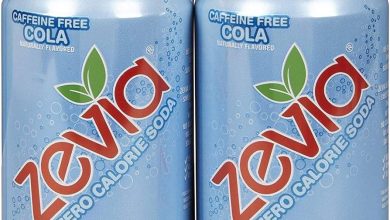Peanuts (All Types, Dry-Roasted with Salt) – Nutritional Information
Peanuts, particularly dry-roasted with salt, are a nutrient-dense snack that offers a range of essential vitamins and minerals, along with healthy fats and proteins. These versatile legumes, which are commonly enjoyed in various dishes or on their own, provide an excellent source of energy, making them a popular choice for those seeking a quick, satisfying snack.
Nutritional Breakdown (per 100g):
| Nutrient | Amount |
|---|---|
| Energy | 587 kcal |
| Protein | 24.35 g |
| Total Fat | 49.66 g |
| Saturated Fats | 7.723 g |
| Carbohydrates | 21.26 g |
| Fiber | 8.4 g |
| Sugar | 4.9 g |
| Calcium | 58 mg |
| Iron | 1.58 mg |
| Magnesium | 178 mg |
| Phosphorus | 363 mg |
| Potassium | 634 mg |
| Sodium | 6 mg |
| Zinc | 2.77 mg |
| Copper | 0.428 mcg |
| Manganese | 1.786 mg |
| Selenium | 9.3 mcg |
| Vitamin C | 0.0 mg |
| Thiamine (Vitamin B1) | 0.152 mg |
| Riboflavin (Vitamin B2) | 0.197 mg |
| Niacin (Vitamin B3) | 14.355 mg |
| Vitamin B6 | 0.466 mg |
| Folate | 97 mcg |
| Vitamin B12 | 0.0 mcg |
| Vitamin A | 0.0 mcg |
| Vitamin E | 4.93 mg |
| Vitamin D2 | 0.0 mcg |
Allergen Information:
Peanuts are a common allergen, and individuals with peanut allergies should avoid consuming them in any form. The dry-roasted peanuts listed here contain added salt, which may be relevant for those with sensitivities to sodium.
Dietary Preferences:
Peanuts are naturally gluten-free, making them suitable for those following a gluten-free diet. They are also an excellent option for individuals following vegetarian or vegan diets, providing a high-protein, plant-based source of nutrition. However, due to their high fat content, they should be consumed in moderation, especially for those managing their calorie intake.
Advice:
Peanuts are a nutritious and energy-dense food that can be included in a variety of diets. Their high protein and fiber content help keep you feeling full, making them a great snack for those on the go. However, due to their fat content, it’s important to enjoy them in moderation, particularly if you’re watching your calorie intake. Consider pairing peanuts with fruits, vegetables, or whole grains to balance out their nutrient profile. Additionally, those who are salt-conscious may want to opt for unsalted versions to avoid excess sodium intake.
Conclusion:
Dry-roasted peanuts with salt are an excellent source of plant-based protein, healthy fats, and various vitamins and minerals, making them a perfect addition to your diet for a quick energy boost. Whether you enjoy them as a snack or incorporate them into recipes, peanuts can offer both nutritional benefits and delicious taste. However, as with all foods, moderation is key, especially for those concerned with their fat or sodium intake.










